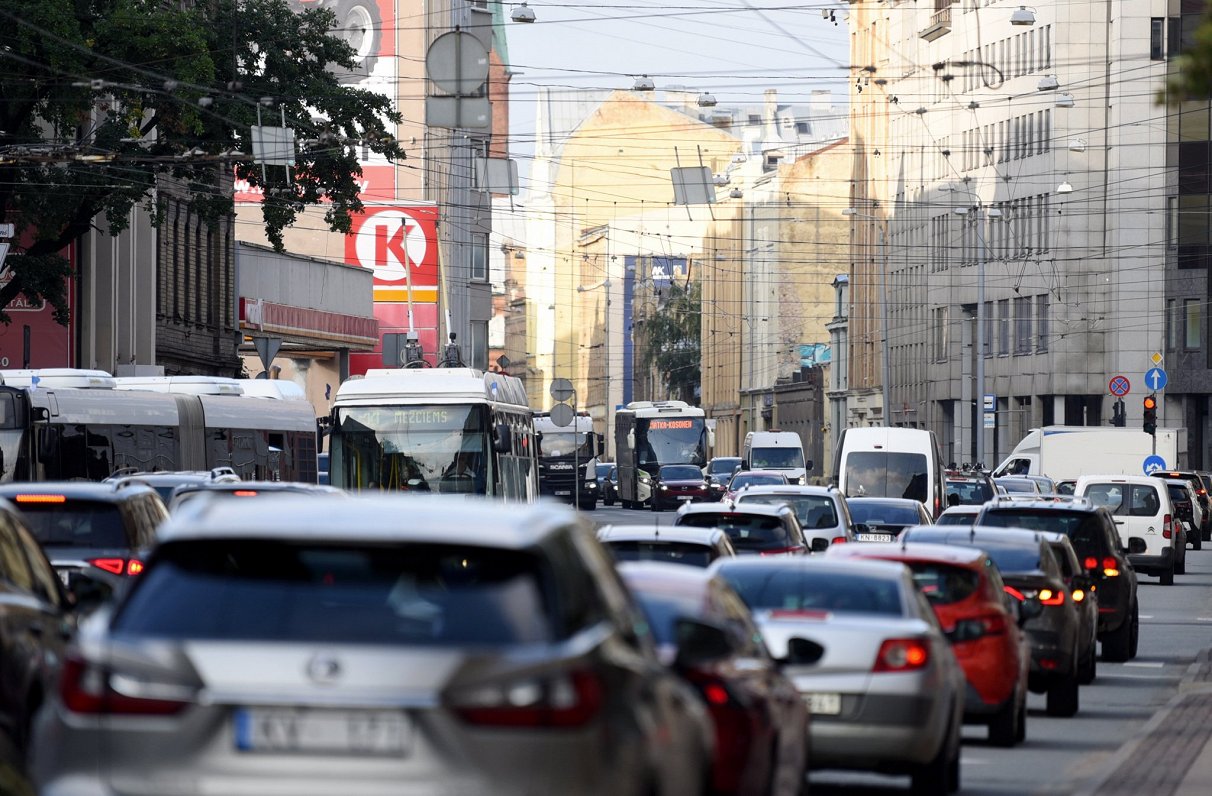The changes would provide that owners who have entered Latvia in vehicles registered in Russia and Belarus would be obliged to re-register their vehicles in Latvia within a specified time period.
If the vehicle is not registered or has not left Latvia within 3 months, sanctions, including confiscation of the vehicle, would follow.
Justice Minister Inese Lībiņa-Egnere (New Unity) said that "any visitor who comes to Latvia must respect the laws and order of our country. Crossing the border of the European Union with a vehicle registered in Russia, [but keeping it long term] in Latvia, is a violation of sanctions".
“If vehicles bearing Russian and Belarusian numberplates are not re-registered in due course, they could potentially be confiscated and sent to Ukraine, supporting its army on the front line. Latvia has already sent dozens of vehicles to Ukraine in this manner after they were confiscated from heavily intoxicated drunk drivers.
“At the same time, Russian and Belarusian citizens, whose countries are waging illegal and bloody war in Ukraine and who nevertheless wish to move within Latvia, are invited to do so by car with registered license plates, by foot or by public transport, in compliance with the law and in respect of road traffic regulations,” the Minister noted.
The Ministry of Justice bases the changes in the legal framework on the decision of the European Commission, which States that the sanctions imposed last year in the European Union (EU) against Russia also apply to private vehicles of Russian residents with registration of the Russian Federation.
The European Commission has indicated that the appropriate and proportionate application of sanctions falls within the competence of each Member State. The planned changes in Latvia would also prohibit vehicles registered in Belarus, taking into account sanctions imposed by the EU against Belarus.
The European Commission (EC) has ruled that the introduction into the European Union (EU) of private cars, telephones, jewelry and other goods, which are considered prohibited imports, is banned. Importing cars bearing Russian license plates into the EU is considered to be a sanctioned export of goods from Russia to the European Union, even if they are used for personal reasons. However, the decision on how to proceed can be taken by the governments of the EU Member States themselves.
According to the EC Decision, Lithuania, Latvia, Estonia and Finland have prohibited persons with vehicles registered in Russia from entering the European Union over their borders with Russia and Belarus. Consequently, from September 12, persons with vehicles registered in the Russian Federation are also prevented from entering the EU through the Latvian-Russian and Latvian-Belarusian border crossing points.
Cars with Russian license plates already have to leave the country within six months in Finland - until March 16, 2024. Meanwhile, the Baltic States are still deciding what to do with Russian cars already on their territory and all look likely to follow suit with similar measures.






























